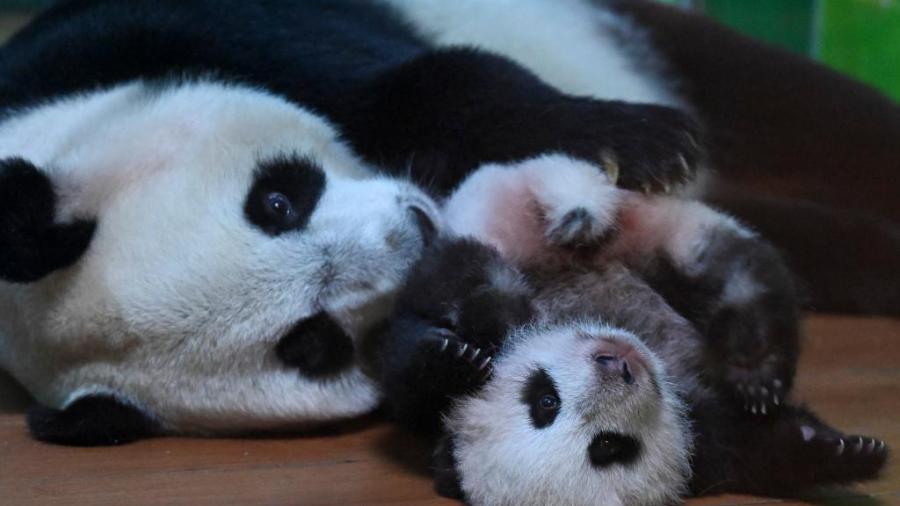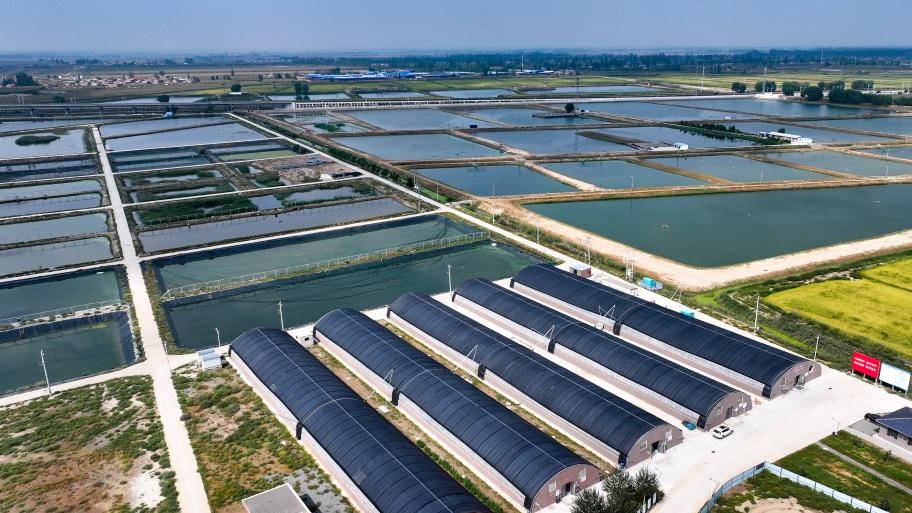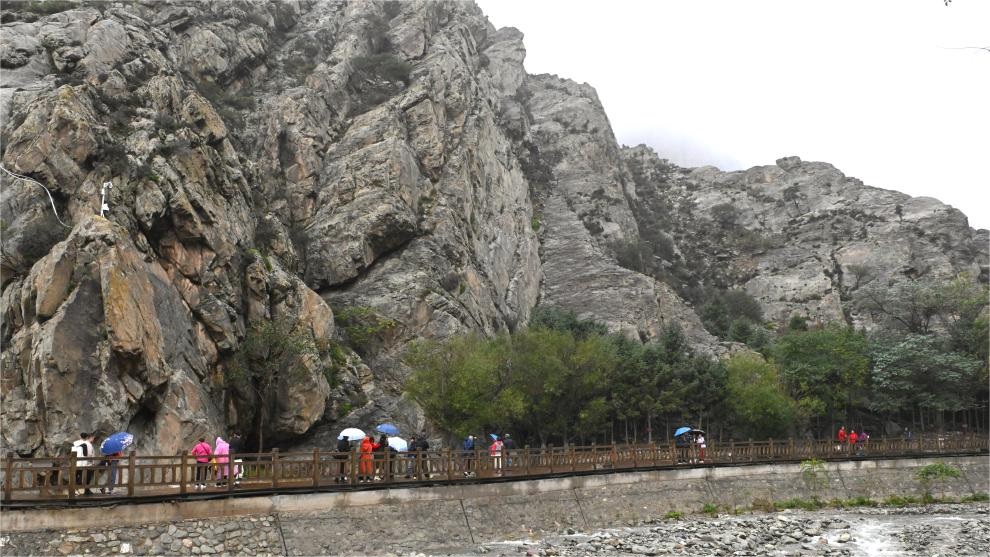Plateau care center offers homely comfort to orphans, elderly
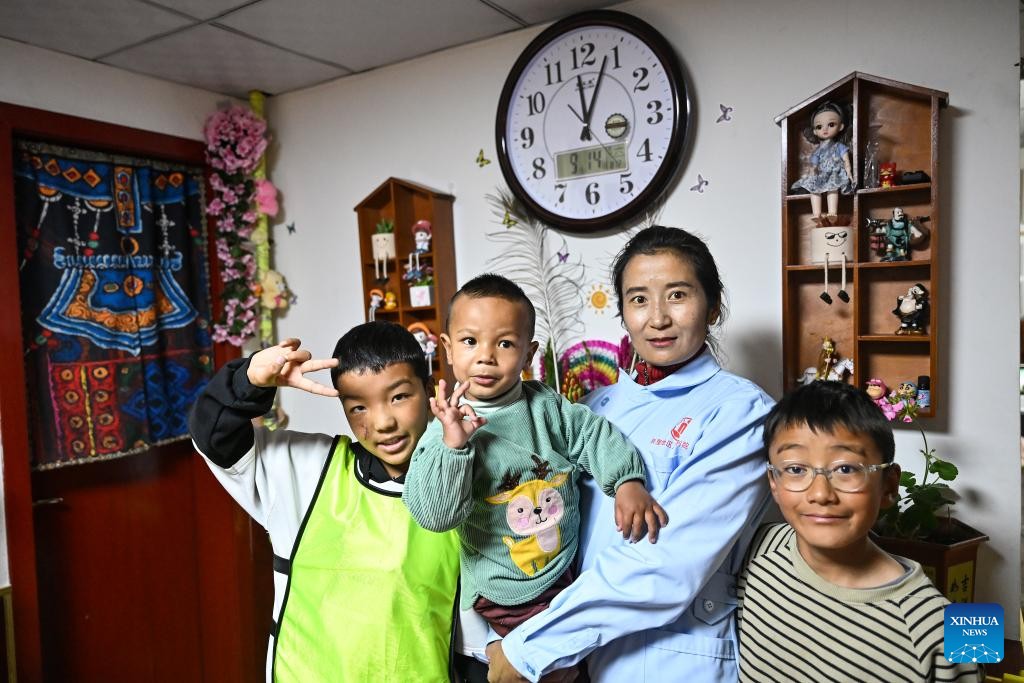
Tsechok Dorje (1st L) and Tsering Drolma (2nd R) pose for a photo at a care center in Ngari Prefecture, southwest China's Xizang Autonomous Region, Sept. 14, 2024. (Xinhua/Sun Ruibo)
LHASA, Sept. 23 (Xinhua) -- Seeing Tsechok Dorje's scar on the right side of his face, Tsering Drolma couldn't help but feel heartbroken, with tears welling up in her eyes.
Several days ago, the eighth grader accidentally fell onto a heater and injured his face at school. When a teacher called Tsering Drolma about the accident, she was so panicked that she immediately asked her husband to drive her to the hospital to check on Tsechok Dorje's condition.
"I dared not be present while he was receiving treatment," said Tsering Drolma, 36. "Luckily, his eyes are fine. Otherwise, I would feel guilty for the rest of my life."
Tsering Drolma is not Tsechok Dorje's biological mother, but a Tibetan worker at a care center in Ngari Prefecture, southwest China's Xizang Autonomous Region. She serves as a custodian-like "mother" of 12 orphans, including Tsechok Dorje.
Sheltering 81 children and 54 elderly people without any family members or living with disabilities, the care center combines the functions of an orphanage and a nursing home, with workers serving like family members and creating an atmosphere like a big family.
Tsering Drolma still remembers when Tsechok Dorje first arrived there two years ago. "Back then, he was still immersed in the sorrow of losing his loved ones. He would often sit alone in the corner without uttering a word," Tsering Drolma recalled.
To help him embrace the new environment, the workers in the care center often took him out to play, made his favorite meals for him and helped him study. These acts of affection and care have gradually transformed him, turning his quiet and reserved persona into a sociable and outgoing one.
In addition to helping his "mother" take care of the younger children, Tsechok Dorje also shares what happened in school as well as his observations during a museum visit with his "siblings." Over the two years, his academic performance has also significantly improved.
To better take care of the children, Tsering Drolma often attends various training sessions, including caring for the orphaned and children living with disabilities, performing first aid and preparing nutritious meals. "Our only wish is for these children to grow up healthy and happy," she said.
The care center was established in 2015 under the support of central and regional governments and the donation of an insurance company, with a total spending of more than 58 million yuan (about 8.2 million U.S. dollars). The center has facilities including a massage therapy room, a dining hall and a laundry room. It also gives allowance to elderly people and children every month.
Compared with the traditional charity institutions that separate children and elderly people, the two-in-one care center offers space as well as an atmosphere for social interactions like a big family, said Jampel, the legal representative of the center, adding that they also organize galas during festivals such as the Tibetan New Year.
After a cup of buttered tea in the morning, Tseten, 83, likes to go to the sunlight hall during the weekends, with children surrounding him to hear his stories about his misery in the past when he was a serf.
"I used to be whipped hard by the master for losing a yak. I had no time to wait for my wounds to heal and had to stand on my feet the next day to herd cattle," said Tseten, who has been living in the center since 2016.
Tseten was in a wheelchair due to his bad knees when he first arrived there. Now, with years of meticulous care and treatment from doctors from a Tibetan medicinal hospital and nurse assistants in the care center, he is able to walk without a cane.
Lhadro, a nursing assistant, is responsible for caring for Tseten and five other elderly people. In addition to bringing buttered tea, doing the laundry and changing sheets regularly for them, she conducts massage therapies and applies Tibetan medicine for external use on them based on doctors' prescriptions.
"Seeing the elderly gradually regain their health, I have a great sense of achievement," said Lhadro.
In recent years, a total of 80 nursing homes for elderly people with extreme financial difficulties have been built in Xizang. By the end of 2022, more than 5,800 elderly people in extreme financial difficulty had been cared for at nursing homes with government support, according to government figures.
A soccer player at school, Tsechok Dorje likes wearing his training vest even at "home" and dreams of becoming a professional soccer player when he grows up. On a wall in his room, where four children live in bunk beds, is a poster of the Brazilian soccer player Neymar.
"I hope I can play soccer as well as Neymar someday," Tsechok Dorje said.
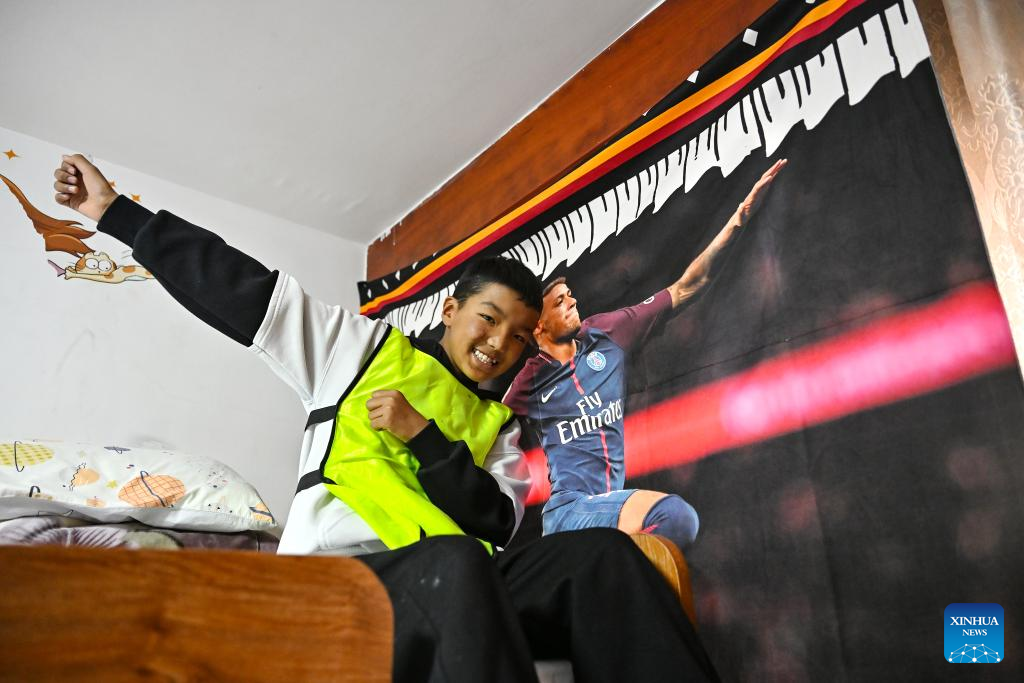
Tsechok Dorje poses for a photo in his room at a care center in Ngari Prefecture, southwest China's Xizang Autonomous Region, Sept. 14, 2024. (Xinhua/Sun Ruibo)
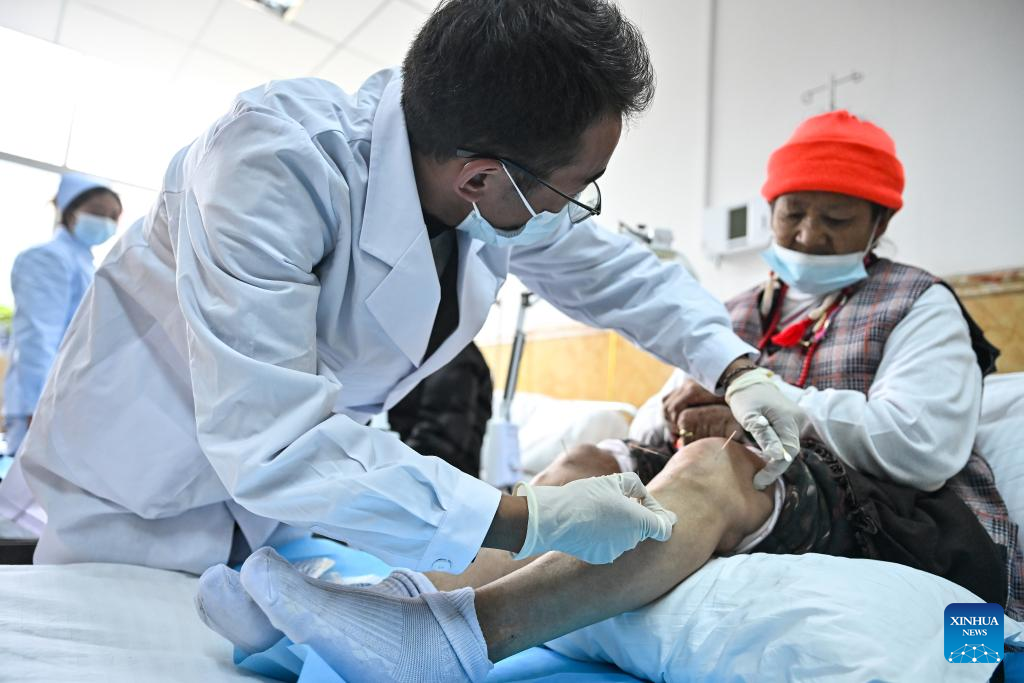
A doctor from a Tibetan medicinal hospital provides acupuncture treatment to a Tibetan woman at a care center in Ngari Prefecture, southwest China's Xizang Autonomous Region, Sept. 14, 2024. (Xinhua/Sun Ruibo)
Photos
Related Stories
Copyright © 2024 People's Daily Online. All Rights Reserved.






